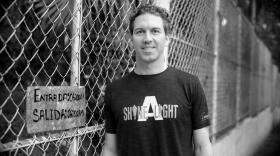When Devin O’Day was diagnosed with a benign brain tumor in December 2005, she felt alone. Her condition, hypothalamic hamartoma, is rare. It’s a deep-brain tumor that attaches to the hypothalamus, the brain’s controller of hunger, thirst and emotions. The symptoms are even more isolating; the tumor often causes outbursts of uncontrollable crying and laughing.
“When I was diagnosed, me and my parents had no one to go to,” says O’Day. There were online groups and email lists, but nothing closer to home. “We wanted people locally to connect to, people we could ask, ‘How do you handle all this without going crazy? How do I prepare mentally and emotionally for brain surgery?’” says O’Day. She appreciates local groups that support children with cancer, but that’s the catch: Her tumor isn’t cancerous. So, with a scholarship from the Pediatric Brain Tumor Foundation, O’Day launched Brain Tumor Outreach of Southern Nevada in October 2008. She’s held several support events for young people with brain tumors, and is working on attaining nonprofit status. Arguably her biggest service: a phone number. “I thought the most powerful thing I could do is just to make myself available. Whether they call me on a holiday or at three in the morning, I’m going to answer,” she says.
[HEAR MORE: Experts share tips on avoiding skin cancer on " KNPR's State of Nevada."]
Alex Nietrzeba, a brain tumor survivor and member of the group, says being able to talk to someone who knows the struggle makes a big difference. “Beyond the medical concerns, there are so many questions. How do I finish school? How do I handle medical expenses? But even just talking to someone who’s been through this is a great help.”
Learn more at btosn.org.








